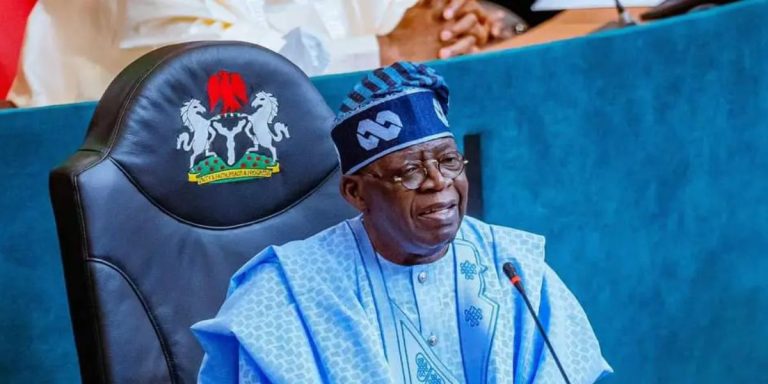Conspiracy and Survival: Tinubu’s First-Year Test and the Battle for Control
By HeadlineNews.News – April 2025
Abuja, Nigeria – As President Bola Ahmed Tinubu approaches the second-year mark in office, revelations of early political subterfuge and high-level conspiracies have begun to surface—painting a picture of a presidency under siege before it had even fully taken root.
The latest trigger comes from a public statement by Barrister Okoi Obono-Obla, a former presidential aide, who disclosed that as early as mid-2023, influential political figures—including former Attorney General of the Federation, Abubakar Malami (SAN)—had begun secret meetings to plot against Tinubu’s administration.

“Tinubu had barely spent a year in office when Malami and others started plotting against him,” Obono-Obla revealed.
“They invited me to a meeting and I asked them, ‘What has Tinubu done?’ Malami, you spent eight uninterrupted years as AGF, what exactly is the grievance?”
This shocking admission adds to the growing body of evidence that power struggles within the Nigerian elite—especially among those from the immediate past administration—have not only survived the 2023 transition but intensified beneath the surface.

The Post-Buhari Power Struggle: Legacy vs. Loyalty
President Tinubu inherited a politically charged environment following Muhammadu Buhari’s eight-year presidency, during which figures like Malami wielded enormous influence over the judiciary, law enforcement, and national prosecutions.
Tinubu, known for his independence and non-dependence on the northern oligarchy, disrupted that network. From appointing a new EFCC chairman to reshaping security leadership and pushing merit-based economic reforms, his early moves signaled a clean break from the past—and not everyone welcomed it.
Insiders have reported that vested interests within the Buhari-era power bloc, including former ministers, governors, and security chiefs, felt sidelined and began quietly resisting reforms by leaking memos, influencing the judiciary, and frustrating appointments.

Tinubu’s Survival Instincts: Lessons from the Jagaban Playbook
President Tinubu is no stranger to betrayal or political coups. As Governor of Lagos from 1999 to 2007, he survived repeated attempts by the federal government under Olusegun Obasanjo to cripple Lagos State, including withholding federal allocations. He built and sustained the only opposition stronghold (ACN) during PDP’s years of federal dominance.
In 2013, he masterminded the merger of fractious opposition groups into the All Progressives Congress (APC)—a feat that dethroned the PDP in 2015. And in 2023, despite internal opposition and a “Muslim-Muslim ticket” controversy, he navigated the electoral storm to emerge victorious.
“Bola Tinubu is not a politician you corner early,” says Dr. Tanimu Sani, political historian at Bayero University.
“He is a long-game player. Most who have underestimated him politically have later paid the price.”

Why the Conspiracy Failed (For Now)
Several factors have allowed President Tinubu to weather the early turbulence:
1. Control of Party Machinery: As the APC’s national leader, Tinubu retains deep influence over party structures, especially in the Southwest and North-Central.
2. Strategic Appointments: Key federal roles were given to loyal technocrats and regional allies, insulating the presidency from internal sabotage.
3. Northern Realignment: While some northern elites opposed him privately, others—including state governors—have embraced a pragmatic alliance with his administration.
4. Public Endorsements: Tinubu has courted civil society, religious leaders, and business elites through policy reforms like fuel subsidy removal and FX unification, bolstering national and international credibility.

A Cautionary Tale of Governance in Nigeria
Obono-Obla’s revelations serve as a cautionary tale about Nigeria’s post-transition politics. Rather than waiting for elections, some elite actors move to sabotage sitting presidents through covert alliances, media manipulation, and judicial pressure.
If not checked, this undermines democratic stability and policy continuity.
“The real danger isn’t the opposition—it’s the ‘loyalists’ still holding daggers behind the throne,” says Dr. Amiida Fraser, MFR, governance consultant.

Conclusion: Presidency Under Pressure, But Not Powerless
President Tinubu’s first year in office has revealed the complexity of governing post-Buhari Nigeria. Faced with conspiracies, silent sabotage, and high-stakes economic reform, his greatest achievement so far may not be policy—but survival.
And as history shows, Tinubu does not just survive—he often wins.
The National Patriots
Headlinenews.news Special Report.




